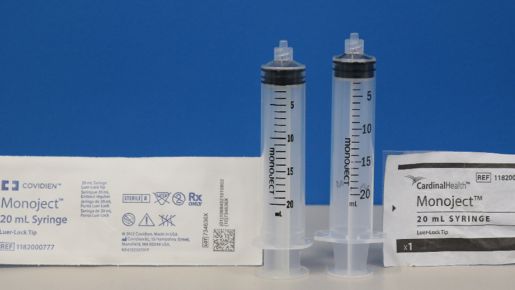Dive Brief:
- The Food and Drug Administration has categorized Cardinal Health’s recall of disposable syringes as a Class I event, reflecting problems that have led to an unspecified number of injuries.
- Cardinal contacted customers in September after learning that some lots of Monoject Luer-lock tip syringes are incompatible with certain infusion pumps. The incompatibility creates the risk of overdosing, underdosing and delay to therapy.
- After reviewing the problem, which is linked to 15 reports of delayed therapy and 13 reports of inaccurate dispensing, the FDA ruled the incompatibility may cause serious injuries or death.
Dive Insight:
The Monoject syringes are part of the portfolio of Covidien devices that Cardinal bought from Medtronic for $6.1 billion in 2017. In June 2023, Cardinal changed the branding of the syringes, rebadging them under its own name rather than Covidien. However, the change from “Covidien Monoject syringes” to “Cardinal Health Monoject syringes” affected more than just the label.
According to the FDA, the Covidien and Cardinal syringes have different dimensions. The impact of the new dimensions quickly became apparent. In mid-September, Cardinal told customers that the conical tip of its Monoject 1 mL syringe is incompatible with certain needleless IV connectors. The FDA treated that notice as a Class II recall.
One week later, Cardinal sent a second urgent medical device product correction that covered the 1 mL device and five other sizes up to 60 mL. That notice led to the Class I recall alert published by the FDA this week.
In the notice, the FDA explained that “the dimensional changes made to the affected Cardinal Health Monoject syringes when used with syringe pumps may result in pump performance issues such as overdose, underdose, delay in therapy, and delays in occlusion alarms.” Cardinal told customers it had not received any reports of patient harm but the FDA alert reports “some injuries.”
No patients have died but the potential for the problem to cause serious injury or death led the FDA to assign the recall to Class I. Cardinal told customers it is working with the manufacturer of the syringes “to remediate the cause of this issue in future production lots.”
The recall affects more than 32.4 million devices in the U.S. but does not require products to be removed from the field.

